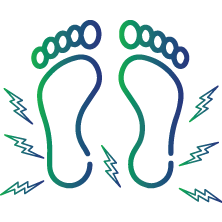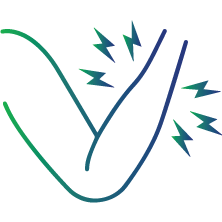
CPK Isoenzymes, Electrophoresis
CPK Isoenzymes, Electrophoresis
The CPK isoenzymes electrophoresis test is a blood test that is used to measure the levels of various forms of creatine kinase, including CPK-MM (in the skeletal muscle), CPK-MB (in the heart), and CPK-BB (in the brain). Electrophoresis is a laboratory method employed for the analysis of CPK isoenzymes, wherein proteins are separated according to their electrical charge and size.
The CPK isoenzymes electrophoresis test plays a crucial role in the diagnosis and monitoring of muscle diseases, heart attacks, and other conditions that may result in muscle damage. Therefore, it is highly recommended to undergo this test as it aids in determining the exact source of the muscle injury
What is the CPK Isoenzymes, Electrophoresis test used for?
The CPK isoenzymes electrophoresis test is used to aid in the diagnosis of

Muscular dystrophy (non-functioning of skeletal muscles)

Rhabdomyolysis (damage to striated muscle tissue)

Heart attack

Myocarditis (Inflammation of heart muscle)

Myocarditis (Inflammation of heart muscle)

Brain stroke

Recurrent heart attacks
Who should get tested?
The CPK isoenzymes electrophoresis test is recommended for individuals with the following symptoms and risk factors:

Tiredness

Dizziness

Nausea or vomiting

Sudden sweating

Muscle pain

Numbness or tingling sensation

Chest pain

Difficulty breathing

Pain in the neck

Pain in the left arm

Having dark-coloured urine
Test preparation
Prior to the test, it is recommended to avoid any vigorous physical activity for a period of 24 hours
Interpretation of the Test Results
The test results may vary according to the age, gender, health history, diagnostic centre and methodology used. The normal levels for the three isoenzymes of creatine kinase are as follows:
|
CPK Isoenzymes |
Normal Levels |
|
CK-MM |
100% |
|
CK-MB |
0% |
|
CK-BB |
0% |
Deviation from normal levels indicates the following:
· Elevated levels of CK-MM are commonly observed when there is muscle damage occurring in the heart, brain, or skeletal system following incidents like crush injuries, seizures, muscular dystrophy, muscle inflammation, or other skeletal muscle disorders.
· Elevated levels of CK-MB are commonly observed in cases of myocardial infarction, myocarditis, cardiac trauma, heart surgery, muscular dystrophy, and other cardiac ailments.
Elevated levels of CK-BB are commonly observed in cases of brain injury, meningitis, abnormal cell growth, hypothermia, severe shock, stroke, or restricted blood flow to the bowel
FAQs
How is the sample collected for the CPK isoenzymes, electrophoresis test?
A healthcare provider will draw a small blood sample from a vein in your arm using a needle. The blood will be collected in a test tube or vial and sent to the lab for analysis
What are the risks associated with the CPK isoenzymes, electrophoresis test?
There are no known risks associated with this test. During a blood test, one may experience minor pain or bruising where the needle was inserted, but most symptoms will subside quickly
What is the turnaround time (TAT) for the CPK isoenzymes, electrophoresis test result?
The CPK isoenzymes, electrophoresis test result is usually available within 2 days after the sample collection. This duration may vary depending on the diagnostic clinic
Can certain medications affect CPK isoenzyme levels?
Yes. Certain medications, including statins, steroids, and psychiatric medications, have the potential to impact CPK levels
What are the functions of creatine kinase within the body?
Creatine kinase plays a vital role in the generation of energy within muscles. Its primary function is to facilitate the conversion of creatine into phosphocreatine, which serves as an energy source for muscle contractions

